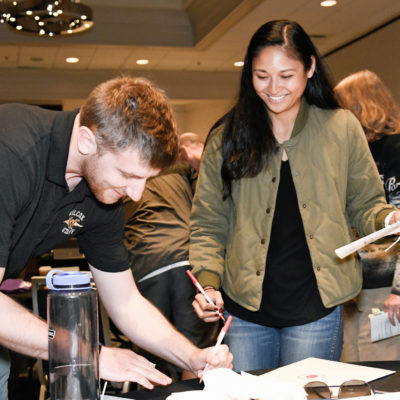Teach the Teachers Program
AIER’s Teach the Teachers program targets an audience of high school teachers with in-person seminars coupled with online lesson plans and follow-ups. In addition to micro-and macro-economics, teachers are exposed to a variety of applied economic topics, such as economic history, international trade, and the environment.
Courses are taught by AIER economists and teachers associated with our partner Foundation for Teaching Economics. With over 40 years of experience in helping teachers of economics become more effective educators, FTE provides AIER with the administrative and planning support needed to attract and engage teachers and their continuing education programs. Something that is not AIER’s comparative advantage.
Participants learn to incorporate activity-based lessons into their economics classes and also add to their expertise in the field. In addition to micro-and macro-economics, programs cover a variety of applied economic topics, such as economic history, international trade, and the environment. AIER researchers and FTE trainers are on hand at every event to connect classroom applications and contain instructions to the economic ideas and methodology supporting free markets and individual freedom.
All lessons and activities are correlated with both the Common Core state standards and all 50 state standards in economics. Teach the Teacher courses are accredited through the University of Colorado, Colorado Springs and graduate-level credit is available.
Past programs include:
Fundamentals of Environment Economics
The course emphasizes the relationship of the specific concept to an understanding of environmental economics. Teachers are introduced to basic economic concepts such as externalities, property rights, opportunity cost, trade-offs, and expected marginal benefit/cost.
Additionally, participants play simulation games about water usage, fishing which address issues of the “commons” and the elasticity vs inelasticity of certain goods.

Issues of International Trade
This course includes an overview of a variety of international trade-related economic concepts. Lectures cover comparative advantage, exchange rates, balance of payments and trade barriers.
Through both the discussion and simulation, participants come to understand: 1) why people trade; 2) how voluntary trade creates wealth, and 3) the role of barriers to trade in impeding growth in wealth.
Teachers also take part in activities and trade simulations aimed at better understanding international labor markets, tariffs, and gains from trade.

